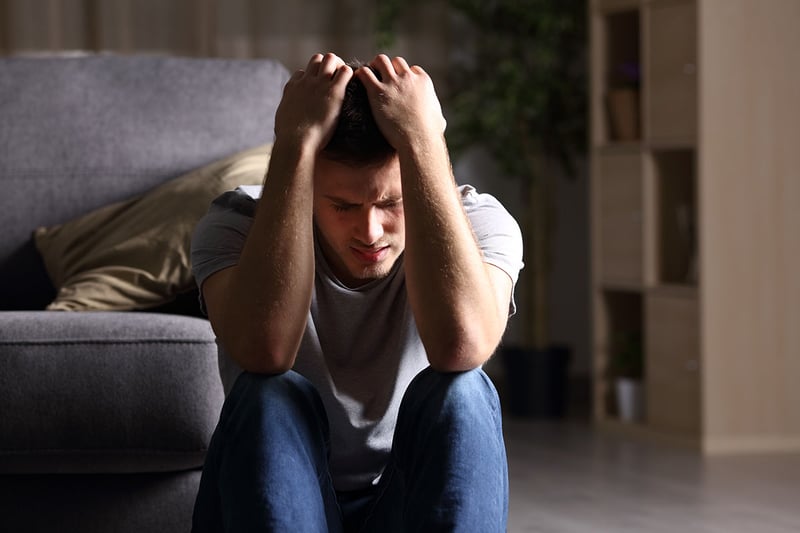5 Common Signs of Anxiety

An individual with an anxiety disorder may fear events, places, objects, and situations that are not life-threatening. Many teens and adults struggle with this condition, so it is essential to recognize anxiety and promptly find treatment.
Stonewater Adolescent Recovery Center can help your teen to overcome the condition through various experiential therapy programs. If you're wondering whether you're suffering from anxiety, our team can help. Contact us today at
662.373.2828 to learn more.
1. Anxiety Causes Lethargy
The disorder can sap your loved one's mental, physical, and emotional energy. If this happens, the person can experience continued tiredness, causing unproductivity. If your teen has sleep troubles due to worrying about school, this can be exhausting and may create long-term problems in different areas of life. The symptoms of anxiety can lead to lethargy and affect the teen's physiology when left untreated.2. Self-Medication
Mental health issues can co-occur alongside substance use disorders. For example, mental disorders symptoms can be uncomfortable, and some may take drugs and alcohol to self-medicate. Teens with personality disorders, schizophrenia, and depression, are at a higher risk of substance abuse. Unfortunately, self-medication does not offer a long-term solution because it only provides numbing effects. Therapists recommend avoiding the different forms of self-medication, including over-eating and excessive drinking. Such behaviors can lead to drug and alcohol dependency. Also, teens can adopt destructive lifestyles and suffer severe consequences. If you are looking for anxiety treatment, check into a rehab facility to get your loved one the much-needed help. At rehab, therapists evaluate the signs of anxiety first before prescribing a personalized treatment program that incorporates therapies such as:- Cognitive behavioral therapy (CBT)
- Dialectical behavior therapy (DBT)
- Adventure therapy
- Fly fishing therapy
- Family recovery support therapy
3. Tense Body
You may have a tense body because of anxiety. The disorder affects the body, causing physiological problems like soreness, lack of relaxation, and tightening muscles. If you struggle with physical movement or feel tensed up for no reason, it could be due to the signs of anxiety. Apart from tightening muscles, other physical symptoms include:- Trouble concentrating
- Feeling tired and weak
- Nervousness and restlessness
- Sense of impending doom
- Trembling
- Sweating

.jpg)

